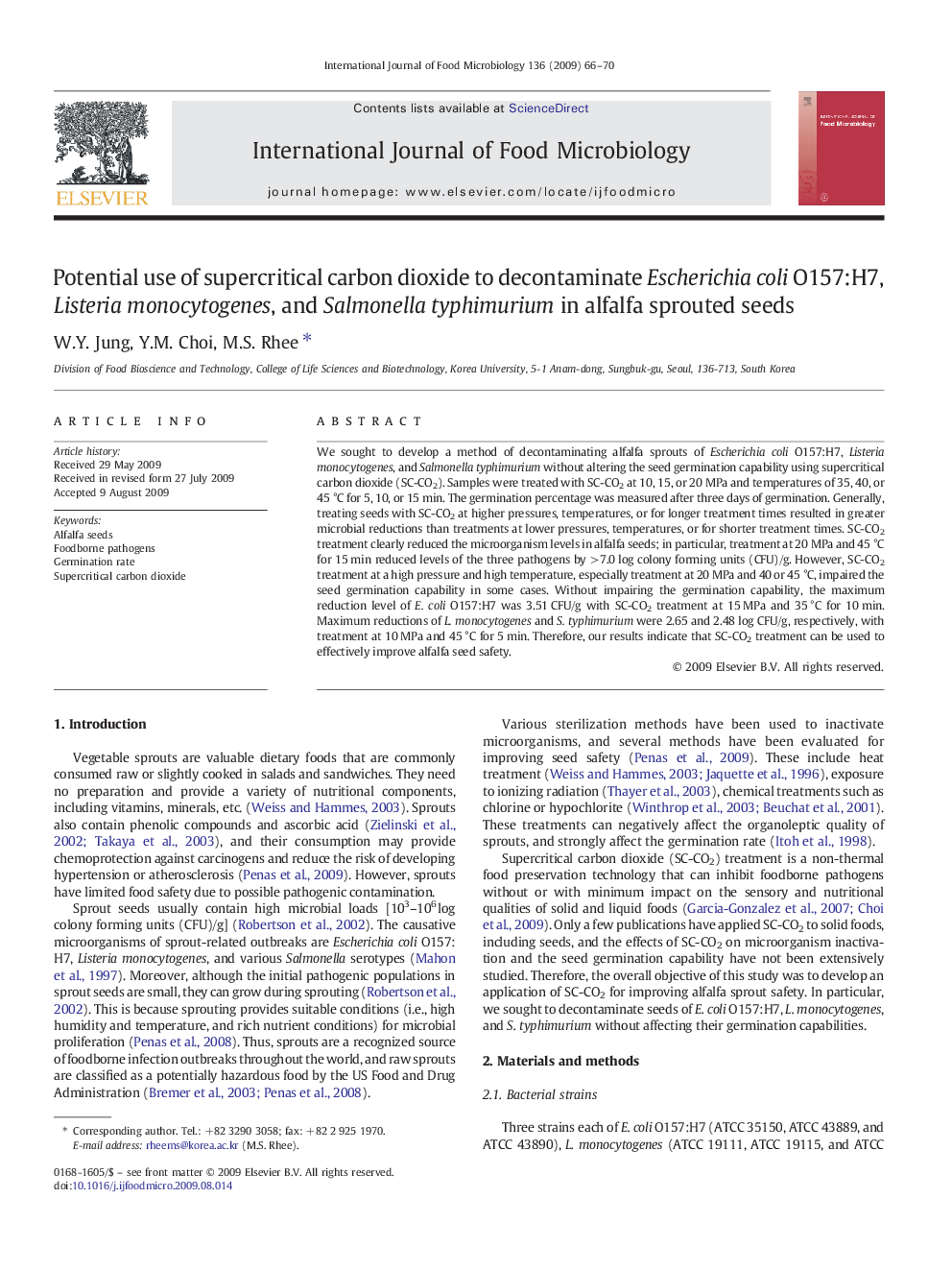| Article ID | Journal | Published Year | Pages | File Type |
|---|---|---|---|---|
| 4368245 | International Journal of Food Microbiology | 2009 | 5 Pages |
We sought to develop a method of decontaminating alfalfa sprouts of Escherichia coli O157:H7, Listeria monocytogenes, and Salmonella typhimurium without altering the seed germination capability using supercritical carbon dioxide (SC-CO2). Samples were treated with SC-CO2 at 10, 15, or 20 MPa and temperatures of 35, 40, or 45 °C for 5, 10, or 15 min. The germination percentage was measured after three days of germination. Generally, treating seeds with SC-CO2 at higher pressures, temperatures, or for longer treatment times resulted in greater microbial reductions than treatments at lower pressures, temperatures, or for shorter treatment times. SC-CO2 treatment clearly reduced the microorganism levels in alfalfa seeds; in particular, treatment at 20 MPa and 45 °C for 15 min reduced levels of the three pathogens by > 7.0 log colony forming units (CFU)/g. However, SC-CO2 treatment at a high pressure and high temperature, especially treatment at 20 MPa and 40 or 45 °C, impaired the seed germination capability in some cases. Without impairing the germination capability, the maximum reduction level of E. coli O157:H7 was 3.51 CFU/g with SC-CO2 treatment at 15 MPa and 35 °C for 10 min. Maximum reductions of L. monocytogenes and S. typhimurium were 2.65 and 2.48 log CFU/g, respectively, with treatment at 10 MPa and 45 °C for 5 min. Therefore, our results indicate that SC-CO2 treatment can be used to effectively improve alfalfa seed safety.
